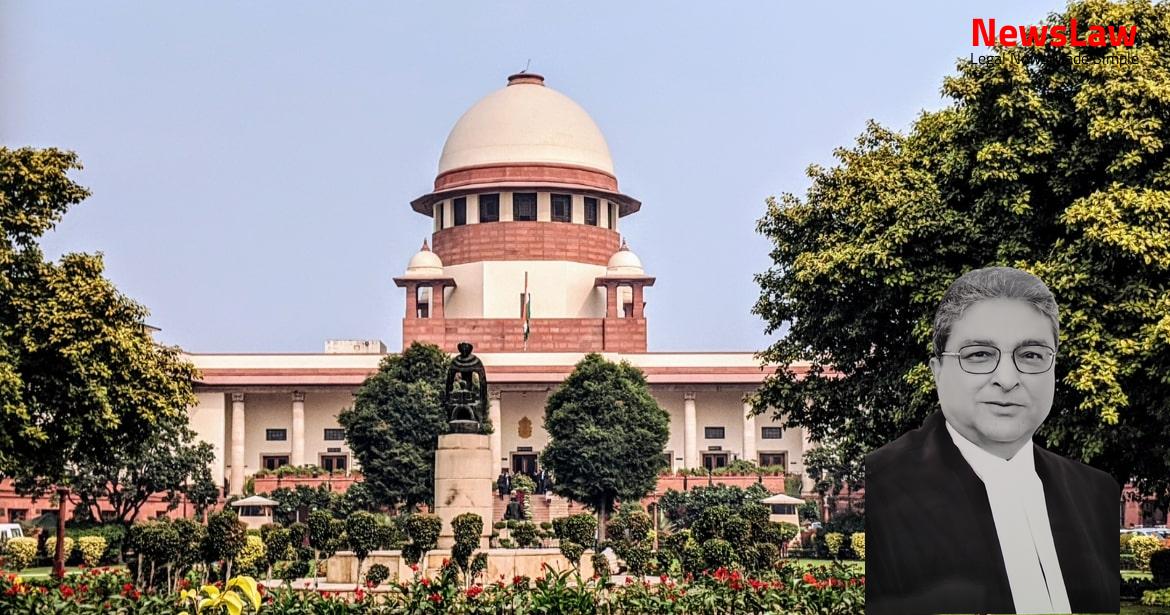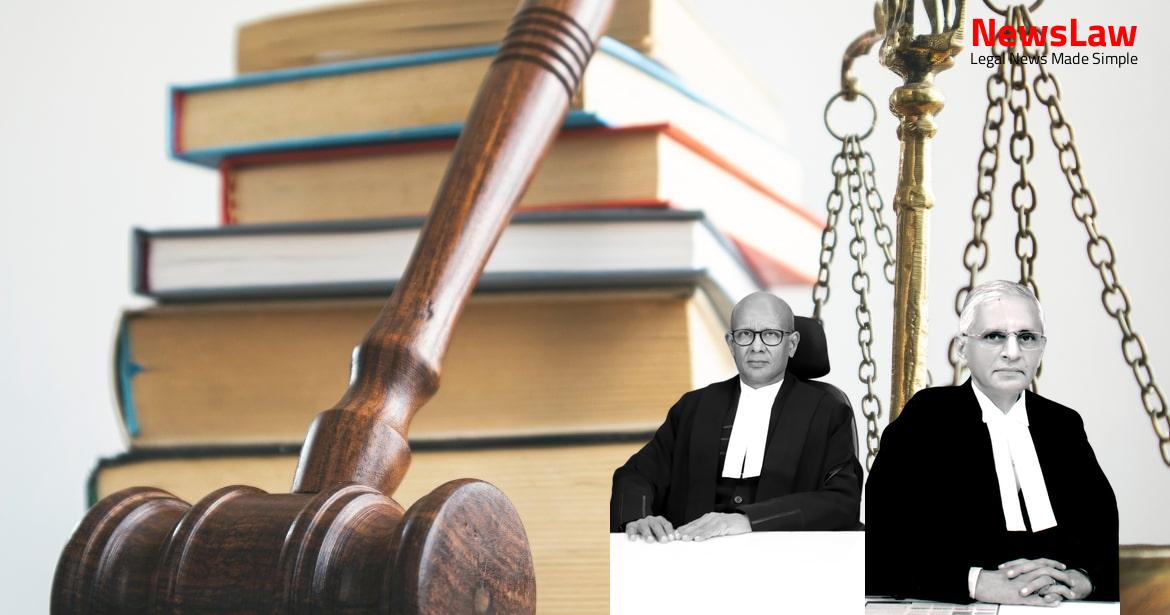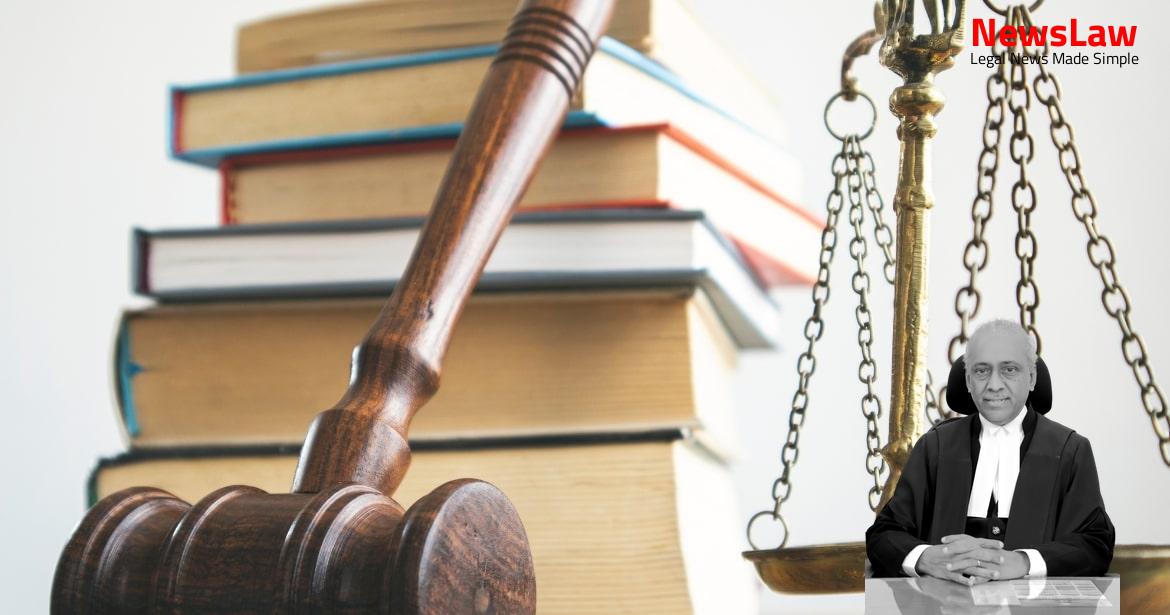Delve into the detailed legal analysis conducted by the court regarding the illegal teacher appointments. Discover the emphasis on the rule of law, fairness, and equality in employment opportunities, as outlined in the court’s judgment. The case sheds light on the crucial importance of proper record maintenance and transparency in candidate selection processes.
Facts
- The Tripura High Court quashed appointments made on extraneous basis without considering the future of students or the aspirations of unemployed youth.
- The selection was contrary to the provisions of the National Council for Teacher Education Act, 1993 and relevant policies.
- Appointments were found to be arbitrary, illegal, irrational, illogical, and tainted by nepotism and favoritism.
- The High Court emphasized the importance of the rule of law, fairness, and equality in the context of employment opportunities.
- Article 14 and 16 of the Constitution of India provide for equality in matters of employment and selection processes.
- Reservations or preferences can only be granted in accordance with the Constitution, not at the discretion of the Government.
- The State of Tripura was restrained from filling up newly recruited posts to prevent flouting of court orders.
- The policy lacked guidelines, leading to the setting aside of the entire selective process by the Court.
- Attempts were made to circumvent the Court’s order by creating new posts tailored for the same individuals whose appointments were quashed.
- Notice issued and reply filed stating Tripura’s decision was bona fide.
- Time granted in direction (b) of the Order dated 29.03.2017 was extended multiple times.
- Directions issued on 01.11.2018 extending period of services of teachers until Academic Session 2019-2020 completion.
- By the end of Academic Session 2019-2020, 8,882 ad-hoc teachers were working in the School Education Department.
- Services of the teachers terminated after Academic Session 2019-2020 as per court directions.
Also Read: Legal Analysis on Arbitration Petition Limitation Period
Arguments
- The State Government is extending full age relaxation to ad-hoc teachers who were removed from their engagements but got selected in fresh selections.
- The State is contemplating accommodating some teachers in alternate employment as they may not be within the permissible age bracket for regular teacher recruitment.
- The State Government has been giving age relaxation to ad-hoc teachers in compliance with court directions.
- The concern is to re-employ teachers whose services were terminated after the completion of the Academic Session 2019-2020.
- The appointments of discharged ad-hoc teachers to vacant sanctioned Group-C/Group-D posts are proposed on fulfilment of eligibility conditions with age relaxation.
- Mr. Maninder Singh, representing the State, argued that the selection and appointments were deemed illegal and were set aside by the High Court in Tanmoy Nath’s case due to arbitrariness and nepotism.
- He contended that recognizing the past service of the teachers in any way would not be appropriate since the appointments were found to be illegal.
- The State had given adequate opportunities to the concerned candidates through age relaxation, but no additional benefits could be extended to them.
- The alleged figure of 20,165 vacant teaching posts in the State was disputed as incorrect.
Also Read: Analysis of High Courts’ Jurisdiction and Court Orders Under Article 142
Analysis
- The selection process and appointments of about 10,323 teachers were found to be illegal and unfair in the Tanmoy Nath case.
- Candidates, selected or not, were allowed to participate in a fresh selection process with age relaxation but subject to having necessary qualifications.
- Qualifications of teachers must be in conformity with the relevant statutory provisions, especially for teachers governed by the Right of Children to Free and Compulsory Education Act, 2009.
- The selection process was set aside due to lack of guidelines and transparency, affecting the education of innocent children.
- The High Court’s findings were upheld, emphasizing the need for proper record maintenance in candidate selection.
- Contempt proceedings were sought against senior officers of the State for disobedience of court orders.
- Certain teachers’ appointments were challenged, but the petitioners were not parties to previous proceedings.
- The appointment policy was deemed bad, with illegal and unconstitutional clauses.
- The judgment emphasized the need for proper and effective implementation of court decisions.
- A new employment policy was directed to be framed by the State within two months for fair selections.
- Specific directions were given to ensure equal treatment of all citizens and to eliminate preferences based on various criteria.
- The court found no ground to interfere with the impugned order.
- The directions in para 123 needed modification.
- The alternate employment offered by the State is seen as solace, not degradation, for teachers who were not successful in the illegal appointments.
- Given that the selections and appointments were deemed illegal, no further advantage can be given to the candidates.
Also Read: Electoral Malpractices in Mayor Election
Decision
- Instant petitioners seeking review of judgment in Tanmoy Nath (supra) which is not permissible in law
- Pending applications disposed off
- State Government created 12,000 non-teaching posts in Group-C in May-June 2017
- Service rendered by previously selected candidates to be counted for seniority, pension, and all other purposes
- New Employment Policy to be framed by the State by 30 April, 2017
- Advertisements for filling up vacancies to be issued latest by 31 May, 2017
- Candidates can continue attempts for teacher posts till 31.03.2023
- Unsuccessful candidates may retain alternate employment
- Appeals and M.A. (D) No 11372 of 2020 dismissed without costs
- View taken by High Court in impugned order affirmed
- Special leave petitions dismissed
- Age relaxation provided in all selections till 31.03.2023
- Present writ petitions dismissed as an abuse of process of law and speculative in nature
- Fresh selection process to be completed by 31 December, 2017
- Teachers already appointed to continue till fresh process is completed
- Respondents’ counsel seeks further time for submissions
Case Title: AJOY DEBBARMA Vs. THE STATE OF TRIPURA (2020 INSC 480)
Case Number: C.A. No.-002868-002868 / 2020



